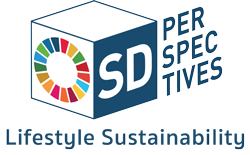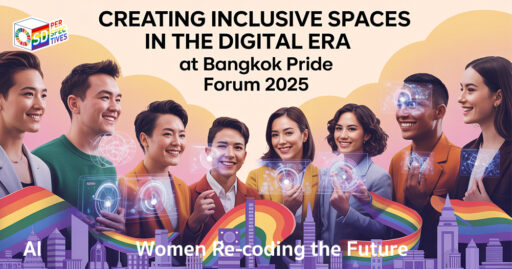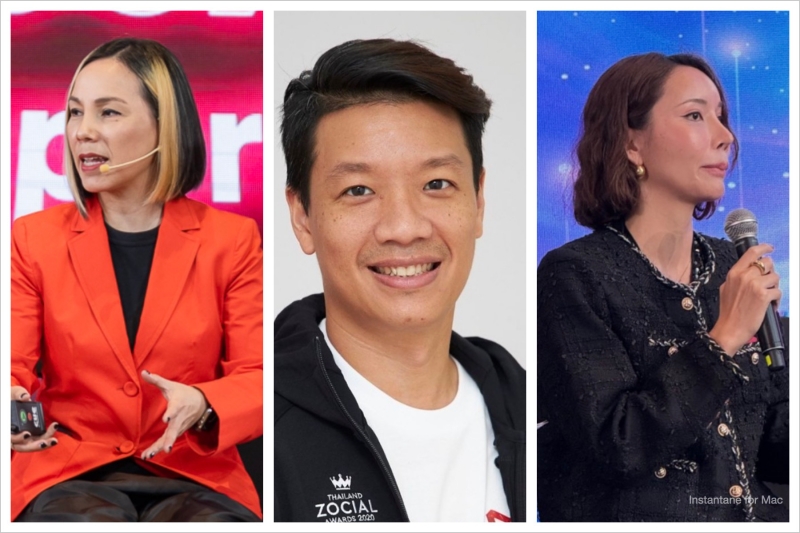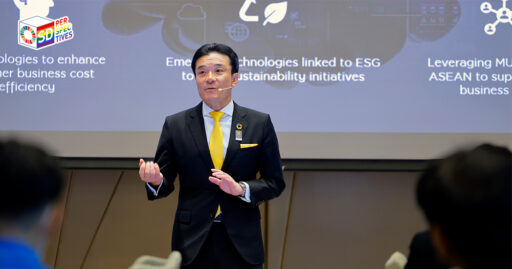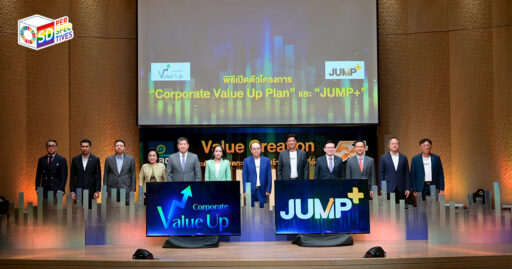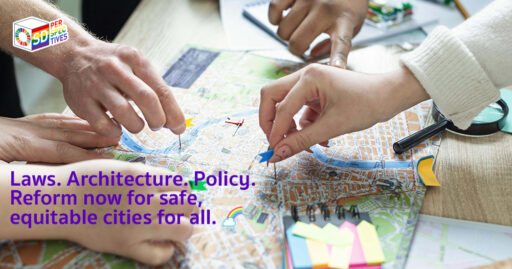June 23,2025…Following the successful passage of Thailand’s Marriage Equality Bill, many view this as a major milestone a gateway to tangible diversity and inclusion. Yet, others argue that inequality still persists online and will take time to dismantle.
At BANGKOK PRIDE FORUM 2025, the session “Diversity and Inclusive Digital for LGBTQIAN+” highlighted the need for digital technologies to offer safe, equitable spaces for LGBTQIAN+ individuals including in app design, AI systems, and online platforms that are free from discrimination.
The panel featured:
Suvita Charanwong, CEO and Co-founder, Tellscore Kla Tangsuwan, CEO, Wisesight (Thailand) Co., Ltd. Nanchaya Toathong, Account Director & Client Relationship Lead, Jenosize Digital Group
All three speakers brought digital-sector experience and perspectives on applying inclusive design and digital equity in service development and platform design within their organizations.
Kla emphasized that inclusivity on digital platforms must be implemented gradually. For example, job applications traditionally offer only “male” or “female” as gender options why not include other options or allow users to skip the question altogether? These incremental changes require consistent advocacy.
“At Wisesight, we use AI to tag influencers and identify whether they are male, female, or LGBTQ+, giving us a demographic breakdown. We do this because it’s not feasible to ask each user directly. We aim to make this process feel natural the best form of inclusion is not to separate people from the start.”
Nanchaya noted that while the creative agency world is often open to LGBTQIAN+ individuals, existing systems are rarely built with transgender or gender-diverse users in mind.
“Thais are empathetic, but when it comes to systemic design, many still feel it’s not yet time. Clients often think only in binary gender terms when briefing us. So we as tech experts must be their first voice of reason, guiding them to consider diverse identities from the very beginning. It’s far easier to design inclusively upfront than to retrofit an entire system later.”
Suvita shared how Tellscore, a content creator platform, embedded inclusivity from day one, even before many users openly expressed their gender identity. The system was ready to support diverse creators once they were ready to express themselves.
“We saw within just a year and a half of launching that LGBTQIAN+ creators often generated higher value — their creativity stands out, and they command premium rates. The creative industry has embraced them, and so have the clients who are constantly seeking fresh ideas. For us, LGBTQIAN+ identities are value added.”
Nanchaya added that inclusive design must go beyond making a system seamless or user-friendly — it must actively challenge assumptions.
“We always ask clients during the design phase: are you leaving anyone out? It’s not just about gender. For instance, if a content piece uses too many colors, can people with visual impairments see it clearly? Are the images only showing men and women? We need to care about all our users. Knowing who they are helps us get the details right. Inclusive design must be flexible and personalized. That’s the future we want.”
However, true inclusive design requires multi-sector collaboration across public, private, and civil society to develop technologies and innovations that reduce systemic bias and leave no one behind, especially the LGBTQIAN+ community.
“If we had clearer data numbers, impact and could campaign for people to be more open about their identities, we’d be able to measure and design better. Whether it’s for economic opportunities or product development tailored to LGBTQIAN+ individuals, Thailand is uniquely open. So why not make that our regional strength?” said Kla, whose view was echoed by Suvita.
Suvita suggested that the Thai government should support policy or applied research aimed at positioning Thailand as a landmark for nurturing an inclusive generation.
“Thailand is incredibly open on this issue. Just like people admire how Japanese culture instills discipline or Chinese parenting fosters diligence, what if Thai parenting was known for raising inclusive kids? It’s in our cultural DNA maybe without us even realizing. And that’s the kind of hard power we want to project.”
As Thailand moves forward, all three speakers agree: marriage equality may be a first step, but it doesn’t automatically transform societal systems. What’s needed is for LGBTQIAN+ individuals to be actively included in shaping these structures from the ground up laying a foundation for a truly inclusive future.
“The passage of marriage equality has brought government recognition. But the digital world has long embraced and supported this shift we’ve been working on it for years. Government agencies had to wait for the law; we didn’t. It’s a milestone worth celebrating: LGBTQIAN+ individuals now exist not just online but also officially, in state records.”
Kla concluded with a powerful reminder
“Digital tools are just that tools to help us live better and communicate more effectively. Don’t mistake them for solutions or depend on them too heavily. Tech evolves quickly. We need to rely on ourselves and use digital as a complement, or we risk becoming its slave.”
